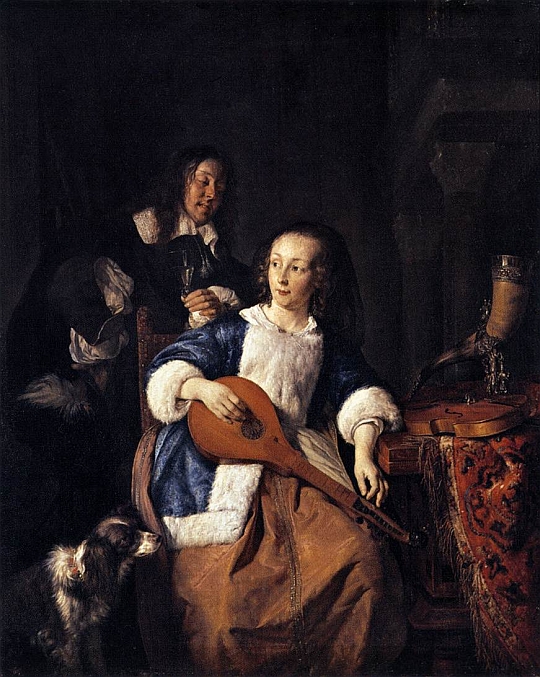
Charm me asleep, and melt me so
With thy delicious numbers,
That, being ravish’d, hence I go
Away in easy slumbers.
Ease my sick head,
And make my bed,
Thou power that canst sever
From me this ill,
And quickly still,
Though thou not kill
My fever.
Thou sweetly canst convert the same
From a consuming fire
Into a gentle licking flame,
And make it thus expire.
Then make me weep
My pains asleep;
And give me such reposes
That I, poor I,
May think thereby
I live and die
‘Mongst roses.
Fall on me like the silent dew,
Or like those maiden showers
Which, by the peep of day, do strew
A baptism o’er the flowers.
Melt, melt my pains
With thy soft strains;
That, having ease me given,
With full delight
I leave this light,
And take my flight
For Heaven.
—Robert Herrick, To Music, to becalm his Fever (ca. 1660) in Chrysomela: A Selection from the Lyrical Poems of Robert Herrick p. 229 (F.T. Palgrave ed. 1876)
Download a reading of Herrick’s To Music for your iPod or MP3 player here.
Of the seventeenth century English poets, Herrick’s work has the closest inherent relationship to music. It is melodious, and most of his poems (excepting perhaps the more religiously themed ones) have the character of song about them. Among his contemporaries, in fact, Herrick is called “the songwriter,” and settings of some of his poems survive (unfortunately for him, the poetry is much better than the music.) Still reading this particularly beautiful effort (note especially: “Fall on me like the silent dew, / Or like those maiden showers/ Which, by the peep of day, do strew/ A baptism o’er the flowers.” The construction and language are wonderful), I think immediately of John Dowland’s songs, especially the Second and Third Books. There is an inescapably downbeat angle to them, but they are beautiful, lyrical and thematically very close to Herrick.
Listen to John Dowland’s Lachrymae Pavane as performed by Winston Arblaster in the Bishop’s Chapel, Wells, England – there are no lyrics for this “dance of tears,” so imagine Herrick’s appeal to the curative power of music.



